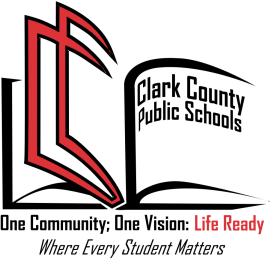Closer Look: What’s involved in school accreditation?
Published 1:42 pm Sunday, July 8, 2018
Since its last accreditation review in 2013, Clark County Public Schools had undergone monumental changes including a new superintendent, two new school buildings, reconfiguration and consolidation of the district, renovations and more.
However, the vast changes served as a catalyst for considerable improvement, according to this year’s accreditation team.
What does it mean to be accredited?
AdvanceED, formerly Southern Association of Colleges and Schools (SACS), reviewed CCPS practices first-hand for a few days in November 2017.
AdvancED is a global leader in providing continuous improvement and accreditation services to over 32,000 institutions serving 20 million students worldwide, Lisa Stone, Kentucky director of AdvanceED said in a presentation of the engagement review for CCPS at the May 15 school board meeting.
Accreditation is an international protocol for institutions committed to systematic and sustainable improvement. It builds the capacity of an institution to improve and sustain learning as well as stimulating effectiveness and efficiency throughout the institution, Stone said in her presentation.
“Accreditation is pivotal to leveraging education quality and continuous improvement,” Stone’s presentation noted.
Superintendent Paul Christy said accreditation reports also show the public the quality of the education in the district. They can serve as a recruitment tool if scores are high, he said.
The process
AdvancED completed a diagnostic of CCPS with focuses on leadership capacity, learning capacity and resource capacity. It sent in an “engagement review team” in November to gather evidence and information pertinent to evaluating an institution’s performance against the research-based AdvancED performance standards.
Brenda Considine, CCPS chief academic officer, said districts could choose when accreditors come, so CCPS chose November to begin the review process to avoid possible inclement weather in the winter months.
“With that said, it was a quick turnaround for us to gather and collect evidence and data for the team,” she said. “We began doing that around August, September; we had to upload all the evidence to show the team kind of how much we had mastered the standards so that they had all of their information.”
The team consisted of both in-state and out-of-state educators of which AdvancED selected. Then, AdvancED used the standards to assess the quality of CCPS learning environments and provided feedback to the school to help it improve, Stone said.
Over the course of Nov. 5-8, AdvancED conducted 93 total interviews with board members, Superintendent Paul Christy, administrators, instructional staff, support staff, students, parents and other community members.
“This team was very thorough,” Considine said.
Considine said CCPS presented evidence to the team and let them sift through documents.
“It’s all electronic now, which is so much nicer than the old days when we would have big boxes for them,” Considine said.
Before AdvancED’s visit, CCPS surveyed students, parents, teachers, administrators and more to let AdvancED get a feel for the district’s success in the eyes of its stakeholders, she said.
Considine said part of the process is self-reflection on the district level.
“We do a needs assessment,” she said. “We look at some of the indicators and then what we’re doing to address the indicators. Then we provide the evidence to the team.”
In total, CCPS provided more than 700 pieces of evidence, Considine said.
AdvancED also conducted about 35 classroom observations across the district.
Considine said AdvancED also changes their standards every so often. So, CCPS must adapt to new standards each cycle.
“Our cycle is always going to be with the new update,” Considine said.
Considine said one of the benefits is CCPS learns new initiatives before other districts.
“We learn all the new stuff before anybody else does,” Considine said. “So all the other districts, when they get ready to do their district improvement plans and school improvement plans, they’re learning how to use the database. Well, we already know because we had to get trained.
“So that was a positive or a plus for the district is that we had that prior knowledge when everyone else was struggling with the technology portion of it, we had it down. So it’s kind of nice to be on the front end of it and not behind a movement or a change.”
Considine said the district also looked at the previous 2013 accreditation report to compare.
“We had met a lot of the things that we were supposed to be working on,” she said. “We had addressed it in the five years, so you start from there, and you build … Five years ago, we didn’t have a common reading and math curriculum across schools and grade levels. And (AdvancED) felt like that was something that needed to happen. And when Mr. Christy became superintendent, that was the first thing he did was we’ve got to get a reading and English language arts series for all for elementary (schools), and Baker, and then and then one for Campbell…
“And we did the same thing with math because I felt like that at that time, there were seven elementary schools, and they were all seven different programs.”
The results
Overall, AdvancED uses 31 system performance standards to comprise what it calls the “Index of Educational Quality (IEQ). This score is based on a range of 100 to 400 points and broken into the leadership, learning and resource categories. CCPS scored a 338.98. S
AdvancED also labeled standards into subcategories: needs improvement, emerging, meets expectations and exceeds expectations. CCPS received no “needs improvement” label on any of their standards and only six emerging standards, according to the report.
For the classroom observations, AdvancED compared practices to various standards in different categories. CCPS scored highest on the “well-managed” and “supportive learning” environment areas. It scored lowest on “digital learning.”
“Of course, the digital learning environment is going to be some of our lowest scores, and you’re going to be just because it is so hard to keep up with that today,” Considine said. “And if you think about it, OK, I’ve been in teaching a long time and so technology-wise, it’s changed a lot, so you have a lot of teachers that are very reluctant to use technology in their classroom.”
AdvancED recommended CCPS to focus on improving “active learning” and “progress monitoring and feedback.”
“We’ve got some areas that we need to work on,” Considine said. “A lot of that is getting the kids to be active learners instead of a lecturing type classroom.”
In her presentation, Stone said CCPS had an unusually high amount of “powerful practices.” CCPS had five “powerful practices,” according to the report. Stone commended the “governing authority” of CCPS as well as the leaders throughout the district.
According to Stone’s presentation, CCPS had established “multiple means to engage stakeholders” in supporting the achievement of the district’s purpose and direction.
Stone said AdvancED also complimented the district’s commitment to data including summative and formative assessments used to evaluate and communicate student progress.
Considine said the pressure is on to keep up the “powerful practices.”
“We were very pleased to get those powerful practices, and now, the thing is sustainability,” Considine said. “So we know that we’re doing these things well. We have to continue to do them.”
However, AdvancED noted two improvement priorities including creating a program of advocacy to ensure each child has personal, academic and career planning support as well as developing a data-based process through which instruction is monitored and adjusted to meet individual learners’ needs.
“We saw that that was an area before in the five years is that advocacy piece,” Considine said. “It’s tough to do with 5,000 students. If you’re a smaller district, it might be easier to tackle. But that’s not an excuse. We have to find a way that every child we know that someone is watching out for them academically…so that we’re providing them all of the avenues that they have for them to be successful.”
Christy said he’d like to take it a step further and make sure there’s an adult in every building that each student can feel safe going to beyond curriculum-related topics. Christy said consistency in staff is a big part of the district’s success.
The team noted many people mentioned in their interviews the district was identifying more students with unique learning needs, social and emotional needs were increasing, students were entering the system with special needs and there was an increase of internal mobility where students need a support system in their new location.
Stone said the engagement review report mentioned the strength of Christy’s leadership as well as the benefits of significant decisions made in the past decade which reduced student-teacher ratio and helped the district grow its contingency fund from 2 percent to 24 percent.
According to the report, “there existed a strong bond that had been the catalyst for the successful changes” that CCPS underwent in the past five years.
“Strong leadership, dedicated teaching staff, fiscal accountability, community support, a collaborative culture and love for children were all alive and well in Clark County Public Schools,” the report states.
What’s next?
With the results, CCPS plans to review and share the findings with its stakeholders which it began in May with the presentation to the board.
“The future is bright and optimistic, filled with hope for the fortunate students of Clark County Public Schools,” according to the report’s conclusion narrative.
Next, CCPS will continue its “improvement journey” by developing plans to address the improvement priorities and to continue strengthening other areas in which CCPS already does well.
“In the next year we will begin to work on the priorities, finding ways to have an advocate,” Considine said.
Considine said the district has already begun rigorous new training for its teachers, too. CCPS has scheduled more than 170 teacher training sessions this summer. CCPS also received a new reading grant it will utilize over the next two years to strengthen its reading curricula.
Christy said he’d like to continue expanding the district’s existing community partnerships as well as letting the public know about the quality of the education offered in Clark County. He said he hopes the accreditation team’s report will bring in more families to Clark County.
Overall, Christy and Considine agreed the accreditation report was an affirmation of the work the district has been doing. However, there’s not much time to celebrate, they said.
“Your work never ends, so we just keep on doing what we’re doing then build on what we need to improve,” Considine said.







